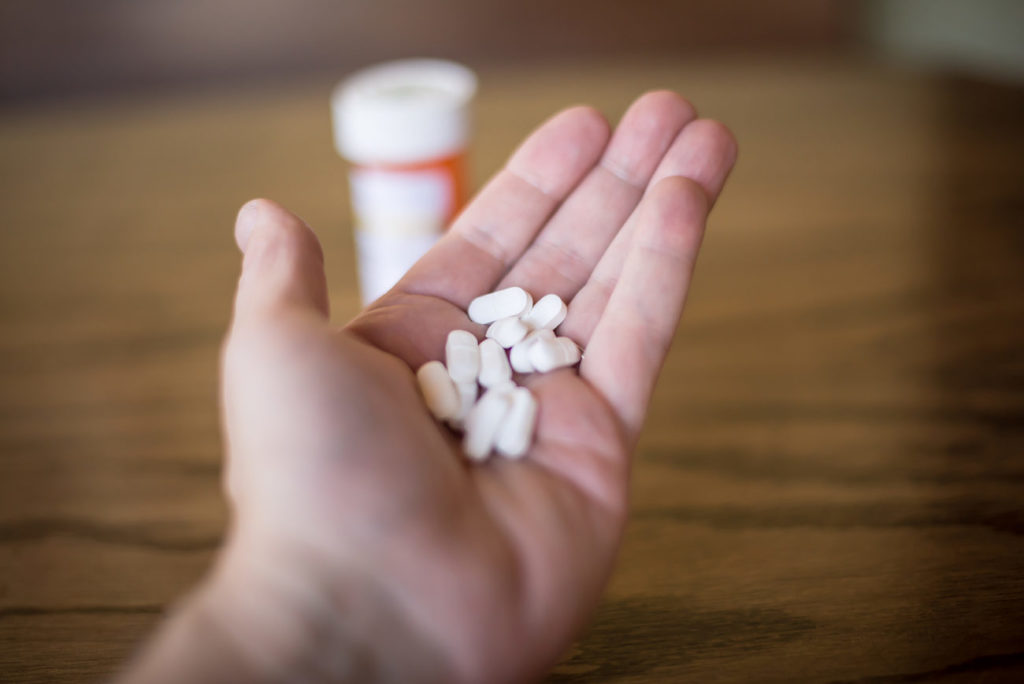Did you know the Drug Enforcement Administration (DEA) reported there roughly 25 million prescriptions given out for cyclobenzaprine each year? It’s the main ingredient in a drug named Flexeril, which is a muscle relaxer most commonly used for treating back pain. While the drug isn’t listed as one of the main contributors to the opioid epidemic, it can become dangerous to ones health and has the potential for abuse and addiction.
Many people don’t know what cyclobenzaprine looks like or what the risks are. The drug is often overshadowed by more powerful opioids like morphine or oxycodone. The truth is cyclobenzaprine addiction poses significant risks to your physical and mental health. Join us in taking an in-depth look about the key facts of cyclobenzaprine addiction and where you can go to break free from the hold it has on your life.
Quick facts on cyclobenzaprine addiction:
- Physical Dependence and Addiction: While cyclobenzaprine is not considered to be as addictive as substances like opioids, benzodiazepines, or alcohol, unfortunately many people misuse or overuse the drug. Over time, physical dependence or psychological addiction may occur.
- Side Effects and Overdose: Abuse of cyclobenzaprine can lead to various side effects and, in some cases, overdose. Symptoms of overdose may include severe drowsiness, fast heartbeat, tremors or shaking, slurred speech, chest pain, hallucinations, seizures, and respiratory depression.
- Tolerance: Some users might develop a tolerance to cyclobenzaprine, which means they may feel the need to take larger doses to achieve the desired effect. This can increase the risk of side effects and overdose.
- Withdrawal: If someone has been taking cyclobenzaprine regularly for a prolonged period and then suddenly stops, they might experience withdrawal symptoms. These can include headaches, nausea, and malaise.
- Interactions: Cyclobenzaprine can interact with other medications and substances, increasing the risk of dangerous side effects. Combining it with alcohol, for example, can intensify drowsiness and impair cognitive and motor skills.
- Intended Use: It’s essential to use cyclobenzaprine as prescribed by a healthcare professional and not to share it with others. Misuse, whether intentional or unintentional, can increase the risk of side effects and other complications.
If you or someone you know is considering taking cyclobenzaprine or has concerns about its use, it’s essential to consult with Footprints Beachside Recovery or a healthcare professional.
View Our Photo Gallery
See how our luxury facilities and beautiful natural surroundings help our clients recover from addiction.
Learn MoreHow Is Cyclobenzaprine Abused?
While it’s true cyclobenzaprine is not as potent as other opioids, it does cause you to feel euphoric, sedated and relaxed. One of the most common ways people abuse cyclobenzaprine is mixing it with alcohol. Because the drug causes your muscles to relax, mixing it with alcohol can enhance that effect since both substances are depressants.
If you’re prescribed cyclobenzaprine, the regular dose is 5 mg to 10 mg, and you’ll take it for around two weeks. However, recreational doses increase sharply, from 20 mg to 80 mg per dose. By taking a higher amount of the drug over a long period of time, you’re drastically increasing your risk for developing a dependence or addiction.
The Risks of Mixing Cyclobenzaprine and Alcohol
Even though cyclobenzaprine isn’t officially defined as a controlled substance by the DEA, it still carries an extremely dangerous risk when mixed with alcohol. The main issue stems from the fact that both are central nervous system depressants. When cyclobenzaprine and alcohol mix together, they slow down some of your body’s natural processes, most importantly your ability to breathe.
Slow respiration can be fatal since it can lead to your breathing stopping entirely. Plus, it’s common for people abusing cyclobenzaprine and alcohol to lose consciousness. Another risk of these substances is that they both lower inhibitions and put you at a higher risk for making dangerous decisions. For example, you would normally avoid driving under the influence, but the alcohol and cyclobenzaprine might convince you otherwise.
How High Is the Risk for Cyclobenzaprine Addiction?
Unlike stronger opioids, cyclobenzaprine abuse happens over a longer period of time. A cyclobenzaprine high is less intense, but it does have a lingering effect. This means that on average, you’ll spend more time being under the influence of cyclobenzaprine than other opioids. This opens you up to the potential for addiction.
Cyclobenzaprine is also unique because it’s possible to become psychologically dependent on the drug as well. Since the drug causes your muscles to relax, with enough time and abuse, you can start to feel like you need that feeling to function normally. It gets to the point where when that relaxation is absent, anxiety and panic can overtake your mind.
Is There Addiction Treatment for Cyclobenzaprine?
While cyclobenzaprine is not one of the most widespread opioids that are abused, you can still find personalized addiction treatment. There are even addiction treatment centers that can help if you’re mixing cyclobenzaprine with other substance like alcohol. Addiction recovery experts are ready to help you safely detox and move forward to lasting sobriety.
Discover Expert Addiction Treatment in Florida
Footprints Beachside Recovery is a family-run addiction treatment center in Florida that can offer you personalized support to help you overcome addiction. We’ve been through addiction recovery ourselves and know how challenging it can be to reclaim your life, but you’re not alone. You have the potential to heal your mind, body and spirit.
In the scenic beach town of Treasure Island, FL, we can give you a healing and private environment to focus on your recovery. Contact our admissions team today to start your journey to lasting recovery and regaining your purpose.



